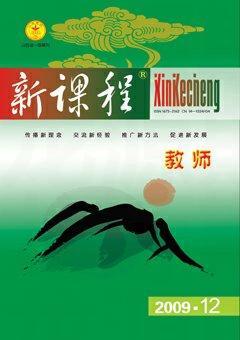Transforming the teaching model and Promoting the Students’ study by themselves
向 明
Abstract:The last thirty years have been tremendous changes in the field of language teaching and learning the major one is the shift of the focas from the teacher to the learner .This paper makes a practical investigation into the social and cultural factor which affect the fostering of learner autonomy in chinese enviroment,resulting in the fact that some traditional values in Chinese culture are helpful in the promotion of learners autonomy while others,including teachers traditional idea,and modes of teaching etc. are barrters to it .And in the end,some suggestions are given to promote english learners study by themselves in the Chinese enviroment.
Key words:learner autonomysocial and cultural factorsEnglish learner Language teaching has developed so quickly and the main stream is from teacher-centeredness to learner-centeredness.With the main stream,the concept of “l(fā)earner autonomy”has been raised.
In other words,there is growing interest in defining how learners themselves make conscious efforts in mastering a foreign language in China.To help a language learner become autonomous one is one of the leading educational goals.
Language teaching came into its own as a profession in the last century,and over the centuries it has changed.Various theories,normally influenced by developments in the fields of linguistics and psychology,have affected language teaching.In China,the traditional teaching method,ie,the grammar-translation method has been a dominant teaching method in colleges and universities. However,with the development of Chinas politics, economy and science and with Chinas entry into the World Trade Organization foreign language learners are not satisfied only with the development of their reading ability.In China,the present Chinese language teaching is,basically,“teacher-centered”.This form of teaching poses many problems to students,especially to their learner autonomy.How can a language learner succeed if he doesnt even know what, why and how hes trying to learn.The “teacher-centered”teaching form gets the students accustomed to relying on their teachers,which certainly does great harm to their future improvement.
In recent years, terms like autonomy, self-directed learning have earned more and more prominent place in the literature on learner-centeredness. Each term indicates that effective language learners have the capacity to take responsibility for their own learning, independent of the teacher.
It is clear that“autonomy”is not any one specific thing-it is a capacity and a matter of explicit or conscious ability to direct oneself in learning.Like any other abilities, it will grow with practice and becoming rusty with inactivity.

